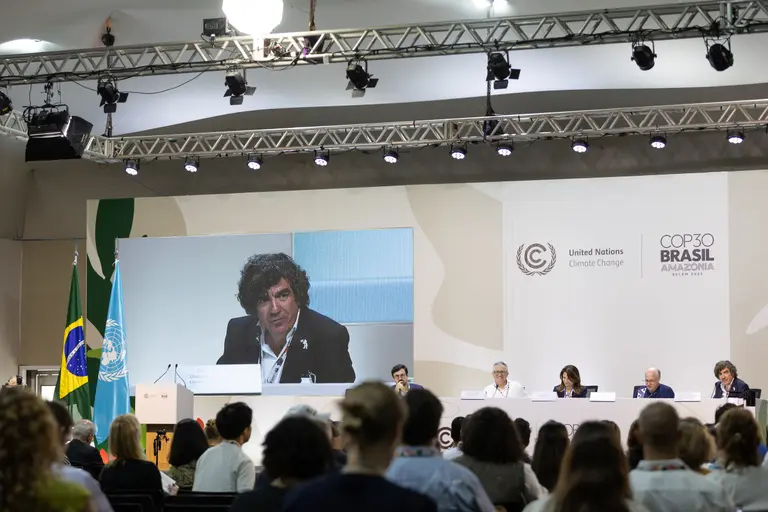
The 30th UN Climate Change Conference (COP30) has opened in Belém, Brazil. This conference marks the 10th anniversary of the Paris Agreement and serves as a platform to review the achievements of the new climate regime and set the direction for the next decade. Representatives from about 200 countries are attending to discuss international cooperation measures to respond to the climate crisis.
The international community has pledged an investment of $125 billion for the conservation of tropical forests. This funding will be used for establishing forest protection policies, supporting indigenous communities, and strengthening the crackdown on illegal logging. The Brazilian Foreign Minister emphasized that tropical forest countries and indigenous peoples should be the main actors in forest conservation.
At the COP30 venue, there were protests demanding the participation of indigenous representatives in environmental policy discussions. They raised concerns about forest protection policies being decided without the input of actual residents. Indigenous peoples in the Amazon region have traditionally managed forests, and the conservation rates in the areas they inhabit are higher than in other regions.
Discussions on Phasing Out Fossil Fuels and Lobbyist Issues
One of the key agendas of COP30 is to establish a concrete roadmap for phasing out fossil fuels. However, thousands of oil industry lobbyists have gathered around the conference venue, making discussions on reducing fossil fuels challenging. This illustrates that responding to the climate crisis involves complex economic and political interests beyond just environmental issues.
The air pollution problem in the Amazon rainforest is also serious. Recent studies show that residents of the Amazon rainforest are exposed to higher concentrations of fine particulate matter than residents of major cities like Beijing or London. Deforestation caused by livestock grazing and logging is a major contributor.
The case of Suriname, known as a carbon sink country, starting oil drilling illustrates the dilemma faced by developing countries. The reality of developing countries being forced to choose between environmental protection and economic development suggests the need for discussions on responsibility sharing between developed and developing nations.
Controversy Over Major Countries' Greenhouse Gas Reduction Targets
The United States and China, the top two greenhouse gas emitters globally, have shown a passive attitude towards reduction targets. Together, their emissions account for about 40% of global emissions, yet they have delayed announcing specific reduction plans.
The South Korean government is expected to announce its carbon reduction targets at COP30. However, there are concerns within the domestic industry that aggressive reduction targets could impose economic burdens.
At COP30, climate response technologies in the agricultural sector are also being addressed as a major agenda. Advanced agricultural technologies such as smart farms are gaining attention as solutions that can maintain productivity while responding to climate change. Agriculture is both a source of greenhouse gas emissions and directly related to food security, making the development of sustainable agricultural technologies a critical task.
COP30 is an important meeting to evaluate the achievements of the past 10 years since the Paris Agreement and to set future directions. Key tasks remain the investment in tropical forest protection, ensuring indigenous participation, establishing a roadmap for phasing out fossil fuels, and the implementation of substantial reduction targets by major countries.

![[Scenario] 2026 Global Wildfire Calendar: The Unending Cycle of Flames](https://cdn.breathjournal.com/w400/q80/article-images/2025-10-01/83cbd0d7-c7c9-4101-b4f6-e39cff028d87.png)

![[Focused Planning] 2026 Global Wildfire Calendar, Facing a Charred Future](https://cdn.breathjournal.com/w400/q80/article-images/2025-10-01/5be639f5-d684-4605-acb1-e0127c554e7c.png)

댓글 (0)
댓글 작성
댓글을 작성하려면 로그인이 필요합니다.
로그인하기